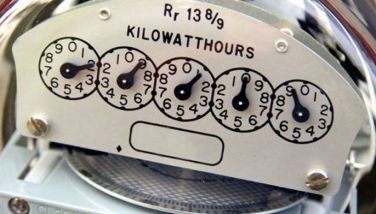Meningococcemia claims first Cebu death
CEBU, Philippines - An adult male from Barangay Camputatan in Danao City who died from meningococcemia last August 16 was the first confirmed case involving the disease in Central Visayas, the Department of Health confirmed yesterday.
Renan Cimafranca, head of the Regional Epidemiology and Surveillance Unit of DOH-7, said the victim died afternoon on August 16 at the Vicente Sotto Memorial Medical Center, a day after he was moved from the Danao Provincial Hospital.
Because of this, the victim’s immediate family was given antibiotics. Both the victim’s family and medical staff at the Danao hospital who attended to him are placed under observation.
Meningococcemia is a contagious disease that can spread when the person infected sneezes or through respiratory secretions.
Cimafranca said that because meningococcemia is a contagious disease, the man was buried immediately a day following his death.
“That is part of our policy that if a person died of an infectious disease, he has to be buried immediately,” Cimafranca said.
He said DOH is now investigating how the victim contracted the disease considering that he had no history of travel.
“The victim has no history of travel. Nara gyud siya sa Danao. We are now checking in the barangay if there are similar cases,” Cimafranca added.
Cimafranca disclosed that two other cases were identified prior to the one in Danao but laboratory examination cleared earlier signs.
He said 80 percent of cases involving meningococcemia ended up in death because of late detection. Often, too, the people concerned did not feel the urgency of treatment.
Cimafranca advised that those who experience “high-grade” fever for at least two to three days must have themselves checked immediately.
He said those who are susceptible to the disease are people with weak resistance; therefore, eating right and having enough rest are important. He also advised intake of supplements and vitamin C.
“Mas maayo gyud buhaton nga kung masakit gani, mo konsulta gyud dayon sa doctor unya dapat strong ang imong immune system,” Cimafranca said.
He also cautioned against interacting with strangers.
According to the Philippine Council for Health Research and Development, signs and symptoms of meningococcemia include, among others, headache, nausea, vomiting, body pain, joint pain, dramatic increase of body temperature. – with Grace L. Lacamiento/JMO (FREEMAN)
- Latest

























